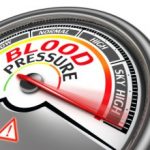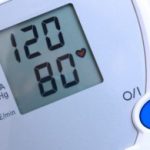Lower blood pressure is a large concern for many Americans because hypertension – high blood pressure – is a serious risk for many cardiac events, such as cardiovascular disease and heart attack. Blood pressure is the force with which our blood hits the walls of our arteries. If this is too high, it means our heart is overworking or that the lining of our arteries is clogged – usually with cholesterol – making it harder for blood to pass through.
For proper heart health it is important to maintain healthy blood pressure, so here are Bel Marra Health’s top blood pressure news stories and prevention, treatment and other breakthroughs regarding blood pressure.
Hypertension Classification: High blood pressure (hypertension) may be an autoimmune disease
Advertisement
Researchers found that hypertension might be an autoimmune disorder.
 Medical experts have known for a long time that there are about 80 different types of autoimmune disease, and new evidence suggests that we might be able to consider high blood pressure or hypertension as another autoimmune disease.
Medical experts have known for a long time that there are about 80 different types of autoimmune disease, and new evidence suggests that we might be able to consider high blood pressure or hypertension as another autoimmune disease.
High blood pressure or hypertension is a common cause of heart attacks, strokes and kidney failure, making it the biggest risk factor for disability and death around the globe. While a lot of investigation has pointed to obesity, high stress and diet as contributing to the disease, an exact cause has never really been established. Living with it gives sufferers an uneasy feeling. This latest research sheds more light on the condition. Learn More
Blood Pressure and Sleep: Sleep apnea treatment, CPAP and MADs, helps lower blood pressure
A recent study found that treating sleep apnea can help lower blood pressure.
 Treating sleep apnea with continuous positive airway pressure (CPAP) and mandibular advancement devices (MADs) can help lower high blood pressure. High blood pressure is a common side effect of sleep apnea – a sleep disorder that causes the individual to stop breathing numerous times a night.
Treating sleep apnea with continuous positive airway pressure (CPAP) and mandibular advancement devices (MADs) can help lower high blood pressure. High blood pressure is a common side effect of sleep apnea – a sleep disorder that causes the individual to stop breathing numerous times a night.
Researchers conducted a meta-analysis study comparing the link between CPAP, MADs and no treatment and their effect on blood pressure. The researchers looked at 51 studies consisting of 4,888 participants.
When compared with no treatment, CPAP was associated with a reduction of systolic blood pressure of 2.5 mmHg and diastolic blood pressure reduction of 2.0 mmHg. MADs were associated with a reduction of systolic blood pressure of 2.1 mmHg and diastolic blood pressure of 1.9 mmHg. Learn More
Blood Pressure Goals: Your blood pressure is still too high
New research suggests that blood pressure numbers should be even lower to maintain health.
 A government report revealed that many Americans with high blood pressure are not properly managing it, thus increasing their risk of experiencing heart attack, heart disease and stroke. The report showed that nearly 47 percent of Americans with high blood pressure have not been able to bring their numbers down to a healthy range, either through lifestyle changes or with medications. The new information comes from the Centers for Disease Control and Prevention (CDC).
A government report revealed that many Americans with high blood pressure are not properly managing it, thus increasing their risk of experiencing heart attack, heart disease and stroke. The report showed that nearly 47 percent of Americans with high blood pressure have not been able to bring their numbers down to a healthy range, either through lifestyle changes or with medications. The new information comes from the Centers for Disease Control and Prevention (CDC).
Although nearly half of those with high blood pressure do not have it well managed, it’s important to note that these numbers are an improvement. Back in 1999 over 68 percent of those with high blood pressure did not have it managed. Unfortunately, even though the numbers are improving, it is still not enough to meet the 2020 Health People goal. The goal by 2020 is to decrease the number of patients with uncontrolled high blood pressure down to 40 percent. Learn More
Blood Pressure Diagnosis: PMS may predict future high blood pressure
A new study discovered that PMS levels are linked to a higher risk of developing high blood pressure.
 Researchers have found that premenstrual syndrome (PMS) can be an early marker of future high blood pressure. Researchers found that women who reported moderate to high PMS had a 40 percent higher risk of developing future high blood pressure within a 20-year span compared to women with low PMS.
Researchers have found that premenstrual syndrome (PMS) can be an early marker of future high blood pressure. Researchers found that women who reported moderate to high PMS had a 40 percent higher risk of developing future high blood pressure within a 20-year span compared to women with low PMS.
Epidemiologist, Elizabeth Bertone-Johnson, Sc.D., said, “To my knowledge, this is the first large long-term study to suggest that PMS may be related to risk of chronic health conditions in later life.”
Researchers adjusted for known risk factors of high blood pressure, and the association between PMS and blood pressure still remained. The strongest results of hypertension were seen in those prior to 40 years of age, where women with PMS had a three-fold higher risk of developing hypertension compared to women without PMS. Learn More
Blood Pressure Guidelines: Western blood pressure guidelines harmful for Asians
Researchers found that blood pressure guidelines are not universal.
 Western guidelines for healthy blood pressure have been found to be harmful for the Asian population and may actually increase stroke risk. High blood pressure is a known risk factor for stroke, and there is a stronger link between blood pressure and stroke in Asian than Europeans or North Americans, meaning what may work for the Western world could be harmful for the Eastern.
Western guidelines for healthy blood pressure have been found to be harmful for the Asian population and may actually increase stroke risk. High blood pressure is a known risk factor for stroke, and there is a stronger link between blood pressure and stroke in Asian than Europeans or North Americans, meaning what may work for the Western world could be harmful for the Eastern.
Globally, 600 million individuals had poorly controlled blood pressure in 1980, which rose to one billion as of 2008. This number is expected to rise 60 percent by the year 2025.
High blood pressure prevalence in Asian countries is also on the rise and has seen a spike in the past 30 years. This is mainly due to urbanization as well as adopting a Western lifestyle. Learn More
Blood Pressure and Seniors: The blood pressure readings you should aim for
A study revealed that changes to blood pressure guidelines need to occur to better represent seniors.
Advertisement
 A normal blood pressure reading has long been agreed to be 120 over 80 but with aging, blood pressure can run as high as 140. The SPRINT study which looked at 9,300 seniors has now revealed what blood pressure numbers should really be for seniors to reduce the risk of cardiovascular events.
A normal blood pressure reading has long been agreed to be 120 over 80 but with aging, blood pressure can run as high as 140. The SPRINT study which looked at 9,300 seniors has now revealed what blood pressure numbers should really be for seniors to reduce the risk of cardiovascular events.
The SPRINT study (Systolic Blood Pressure Intervention Trial) was designed to evaluate the effectiveness of lowering the systolic reading to 120 versus keeping it slightly below 140. This would allow for the risk of cardiovascular events to be reduced. The study even included seniors with a previous cardiovascular event – heart attack, heart failure, chronic kidney disease – but exempted individuals who had experienced stroke. Learn More
Our hope at Bel Marra Health is that you will take the information we provide and turn it into healthy lifestyle choices to help improve your well-being. In regards to blood pressure, we hope that future outcomes will see rates and prevalence drop in the years to come as additional research comes to light in areas of prevention and treatment. For now, practicing healthy lifestyle choices is essential for proper blood pressure numbers.
